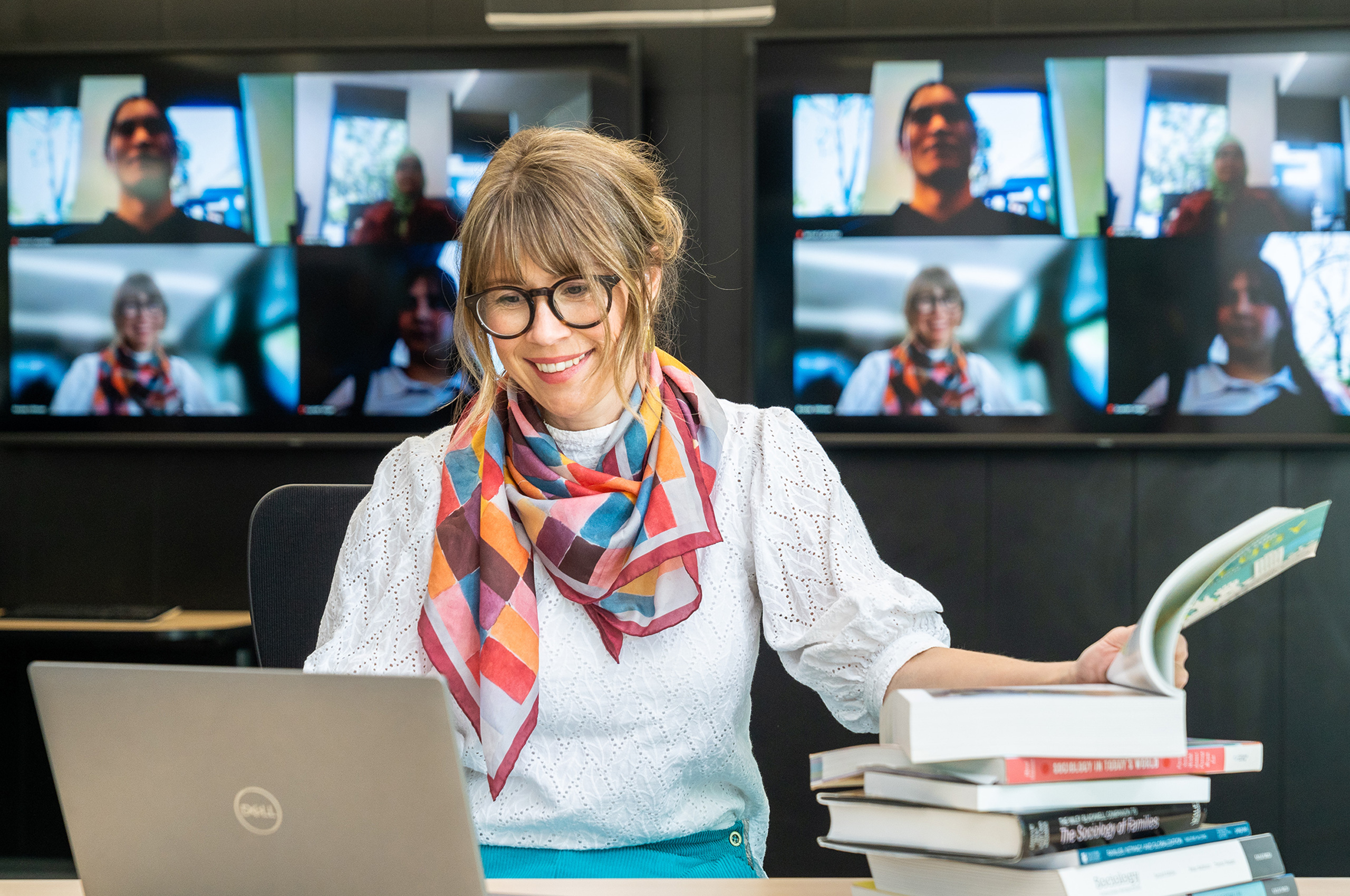About the School of Humanities and Social Sciences

The School of Humanities and Social Sciences is a dynamic community of scholars who research and teach about the human experience – from its earliest beginnings to the latest developments in society, politics and culture.
Our School spans four departments: the Department of Archaeology and History, the Department of Languages and Cultures, the Department of Politics, Media and Philosophy, and the Department of Social Inquiry. We are one of the largest schools at La Trobe University and teach and research around 30 disciplines and interdisciplinary programs.
We are known for our outstanding teaching programs that broaden students’ intellectual horizons, strengthen their career prospects and improve the societies they serve.
We offer students outstanding placement opportunities and exposure to industry projects so that they graduate with workplace experience, a commitment to professional responsibility and high ethical standards.
Our scholars are world leading researchers who study the human experience from its earliest beginnings to the modern day, here in Australia and around the world.
Find out more about our School Executive.

Our scholars uncover the origins of humanity in South Africa, examine authoritarianism in China and Russia, help Indigenous Australian communities recover their past, combat misinformation in democracies, and understand the dynamics of forced migration and resettlement in China – and that is only a tiny slice of the work we do.
Quality learning that’s flexible
Our teaching program covers the full range of Humanities and Social Sciences disciplines.
Our coursework programs centre around the Bachelor of Arts, our flagship degree. It offers students one of the widest ranges of majors in the country, with more than fifty available. It has been designed to put student choice first and is extremely flexible. Students can choose to study on-campus, online or a mix of the two to best suit their circumstances.
We also offer a range of specialist programs including Bachelors degrees in Media and Communication, Archaeology, Global Studies, Languages and Linguistics and Politics, Philosophy and Economics. These programs showcase our outstanding research and award-winning teaching.
The School has an extensive array of international partners in research and teaching, allowing us to offer students opportunities to study overseas in our degree programs. These include short study tours led by La Trobe academics in Europe and Asia, as well as semester and yearlong exchange opportunities with more than 100 partners in 30 countries.
Engaged research
The School of Humanities and Social Sciences has a proud record of internationally recognised research performance, including university-leading research productivity, a celebrated tradition of public engagement, and a longstanding reputation for research leadership across Victoria.
We are a national and international leader in Archaeology, History, Linguistics, Literary Studies, Sociology and Politics.
We have also established Flagship Research Areas – multidisciplinary programs of research excellence that draw on academic expertise across a range of disciplines in the School.
These are:
- Cultures of Health and Wellbeing
- Environmental and Social Change
- First Nations
- Human Origins and Migration
- Security and Governance in Asia and the Pacific.
And, we have founded La Trobe’s Climate Change Adaptation Lab, a large-scale initiative to drive interdisciplinary research on the social impacts of a changing climate.
Our research aligns with La Trobe University’s five research themes: Sustainable food and agriculture; Resilient environments and communities; Healthy people, families and communities; Understanding and preventing disease; and Social change and equity.
Our staff have won fellowships and grants for their work from many prestigious funding bodies, including the Australian Research Council, Facebook, Department of Foreign Affairs and Trade (Australia), State Department (United States of America), Foreign, Commonwealth and Development Office (United Kingdom), Academy of Social Sciences Australia, the International Social Science Council and National Geographic Society (United States of America).
Humanities and Social Sciences at La Trobe has a long and proud tradition of public engagement. Our scholars regularly contribute to national and international media, including interviews and opinion-editorial pieces, and have created successful podcast series including Emperors of Rome, Archive Fever and Below the Line (on the 2022 Australian Federal Election).
Research centres
The School of Humanities and Social Sciences is home to three dynamic research centres: the A.D. Trendall Research Centre for Ancient Mediterranean Studies, the Centre for the Study of the Inland, and the Centre for Human Security and Social Change.
The A.D. Trendall Research Centre for Ancient Mediterranean Studies promotes and supports Ancient Mediterranean studies, particularly in the archaeology of South Italy and Sicily during the Classical period. It aims to make available to the general community in Australia, as well as to researchers globally, the latest research in Greek and Roman art and archaeology through the sponsorship of conferences, lectures and seminars. The Centre houses a world class collection of resources and artefacts used by scholars and graduate students worldwide.
Find out more about the Centre.
The Centre for the Study of the Inland is a leading research centre in Australia. It understands the ‘inland’ to be both a place and an idea, and conducts work of regional, national and international significance with collaborative and practical applications. The Centre has particular expertise on the Murray Darling Basin and the impact of change on people and communities in this region. It frames local issues within international contexts and contributes to urgent debates about the role of society and culture in negotiating change.
Find out more about the Centre.
The Centre for Human Security and Social Change works for inclusive social change. Staff work with a wide range of individuals, organisations and networks that are involved in social change with a particular, but not exclusive, focus on Indigenous Australia, the Pacific and Southeast Asia.
Find out more about the Institute.